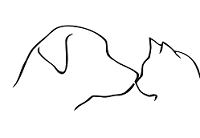
|
Faire un don par paypal : cliquer sur "faire un don"
Merçi à nos visiteurs |
The substrThe "substr" expression extracts portions of a string. The arguments are
To obtain the last n characters of a string use ftime"Ftime" expressions are used for date and time formatting. The generic form is {(ftime "fmt" "when")}
{(ftime fmt="fmt" when="when")}
where fmt is a formatting string and when is the time to be formatted. The arguments can be in either order and may use the optional "fmt=" and "when=" labels. Examples:
The fmt parameter is whatever is given by "fmt=", the first parameter containing a '%', or else the site's default. The formatting codes are described at http://php.net/strftime. In addition to those, '%F' produces ISO-8601 dates, and '%s' produces Unix timestamps. Some common formatting strings: %F # ISO-8601 dates "Mardi, Juillet 1, 2025"
%s # Unix timestamp "1751395658"
%H:%M:%S # time as hh:mm:ss "20:47:38"
%m/%d/%Y # date as mm/dd/yyyy "07/01/2025"
"%A, %B %d, %Y" # in words "mardi, juillet 01, 2025"
The when parameter understands many different date formats. The when parameter is whatever is given by "when=", or whatever parameter remains after determining the format parameter. Some examples: Mercredi, Avril 11, 2007 # ISO-8601 dates
20070411 # dates without hyphens, slashes, or dots
2007-03 # months
@1176304315 # Unix timestamps (seconds since 1-Jan-1970 00:00 UTC)
now # the current time
today # today @ 00:00:00
yesterday # yesterday @ 00:00:00
"next Monday" # relative dates
"last Thursday" # relative dates
"-3 days" # three days ago
"+2 weeks" # two weeks from now
Note: If you want to convert a Unix timestamp you must prefix with the @. Thus, The when parameter uses PHP's strtotime function to convert date strings according to the GNU date input formats; as of this writing it only understands English phrases in date specifications. The variable $FTimeFmt can be used to override the default date format used by the "ftime" function. The default $FTimeFmt is strlenThe "strlen" expression returns the length of a string. The first argument is the string to be measured.
randThe "rand" expression returns a random integer. The first argument is the minimum number to be returned and the second argument is the maximum number to be returned. If called without the optional min, max arguments rand() returns a pseudo-random integer between 0 and RAND_MAX. If you want a random number between 5 and 15 (inclusive), for example, use (rand 5 15).
modThe advanced "mod" expression returns the modulo (remainder) of the division of two numbers. It may be used in advanced PageList templates together with
toupper / tolowerThe "toupper" and "tolower" expressions convert a string into uppercase or lowercase. The first argument is the string to be processed.
ucfirst / ucwordsThe "ucfirst" expression converts to uppercase the first character of the string, and "ucwords", the first character of each word. The first argument is the string to be processed.
pagenameThe "pagename" expression builds a pagename from a string. The first argument is the string to be processed.
asspacedThe "asspaced" expression formats wikiwords. The first argument is the string to be processed.
Nesting expressionsMarkup expressions can be nested. Omit the curly braces for the inner expressions:
Notes
See also
This page may have a more recent version on pmwiki.org: PmWiki:MarkupExpressions, and a talk page: PmWiki:MarkupExpressions-Talk. |